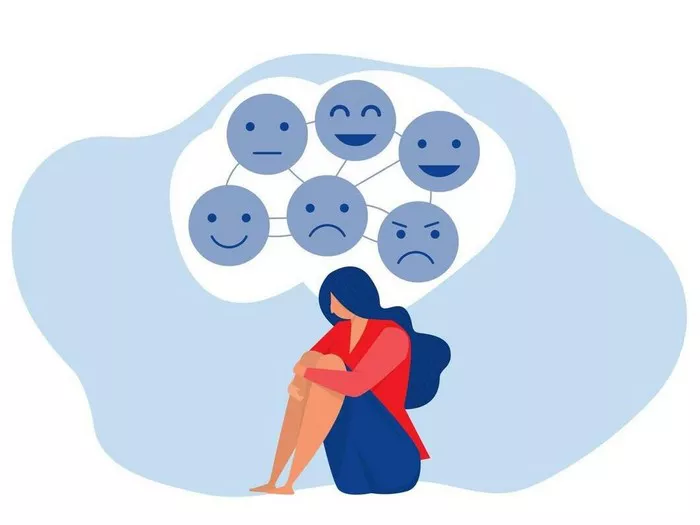Psychological awareness refers to the ability to recognize and understand your own thoughts, emotions, and behaviors, as well as how they influence your interactions with others and the world around you. Improving psychological awareness is essential for personal growth, emotional intelligence, and overall mental well-being. This article will explore practical strategies for enhancing your psychological awareness, the benefits of doing so, and how it can lead to a more fulfilling life.
Understanding Psychological Awareness
Psychological awareness involves self-reflection and insight into your mental processes. It includes recognizing your emotional responses, understanding your motivations, and being aware of how your thoughts shape your reality. This awareness can lead to better decision-making, healthier relationships, and improved emotional regulation. By enhancing your psychological awareness, you can develop a deeper understanding of yourself, which can facilitate personal growth and resilience.
The Importance of Psychological Awareness
Improved Emotional Regulation: Understanding your emotions allows you to manage them more effectively. When you are aware of what triggers your emotional responses, you can develop coping strategies to handle difficult situations.
Enhanced Relationships: Psychological awareness helps you communicate more effectively and empathize with others. By understanding your own feelings and reactions, you can better navigate interpersonal dynamics and foster healthier relationships.
Increased Resilience: Being aware of your thoughts and emotions can help you cope with stress and adversity. This awareness allows you to identify negative thought patterns and replace them with more constructive ones.
Better Decision-Making: When you understand your motivations and emotions, you can make more informed decisions that align with your values and goals.
Personal Growth: Psychological awareness encourages self-reflection and introspection, which are essential for personal development. By understanding yourself better, you can identify areas for improvement and set meaningful goals.
Strategies to Improve Psychological Awareness
Improving psychological awareness is a lifelong journey that requires practice and commitment. Here are several effective strategies to enhance your self-awareness:
Practice Mindfulness Meditation
Mindfulness meditation involves focusing your attention on the present moment without judgment. This practice can help you become more aware of your thoughts and emotions as they arise. Start with just a few minutes each day, gradually increasing the duration as you become more comfortable. Techniques include:
Breathing Exercises: Focus on your breath, noticing the sensations of inhaling and exhaling. When your mind wanders, gently bring your attention back to your breath.
Body Scan: Pay attention to different parts of your body, noticing any tension or discomfort. This practice can help you connect with your physical sensations and emotions.
Journaling
Writing about your thoughts and feelings can significantly enhance your psychological awareness. Journaling allows you to reflect on your experiences, identify patterns in your emotions, and clarify your thoughts. Consider the following approaches:
Daily Reflection: Spend a few minutes each day writing about your experiences, emotions, and reactions. Reflect on what triggered certain feelings and how you responded.
Prompts: Use specific prompts to guide your writing, such as “What am I feeling right now?” or “What thoughts are influencing my mood today?”
Seek Feedback from Others
Sometimes, others can provide insights into your behavior and emotional responses that you may not recognize. Consider asking trusted friends or family members for feedback on how they perceive you. Questions to ask include:
- How do you think I handle stress?
- What do you think are my strengths and weaknesses?
- Are there patterns in my behavior that you’ve noticed?
Engage in Self-Reflection
Set aside time regularly to reflect on your thoughts, emotions, and behaviors. This can be done through quiet contemplation, meditation, or even discussions with a therapist. Consider the following questions during your self-reflection:
- What emotions did I experience today, and what triggered them?
- How did I respond to challenges, and what could I have done differently?
- What are my core values, and how do they influence my decisions?
Explore Therapy or Counseling
Working with a mental health professional can provide valuable insights into your psychological processes. Therapy offers a safe space to explore your thoughts and emotions, and a therapist can help you identify patterns and develop strategies for improvement. Consider different therapeutic approaches, such as:
Cognitive Behavioral Therapy (CBT): Focuses on identifying and changing negative thought patterns.
Psychodynamic Therapy: Explores unconscious processes and past experiences that influence current behavior.
Humanistic Therapy: Emphasizes personal growth and self-actualization.
Develop Emotional Intelligence
Emotional intelligence (EI) is the ability to recognize, understand, and manage your emotions and the emotions of others. Enhancing your EI can improve your psychological awareness. Strategies include:
Identifying Emotions: Practice labeling your emotions as you experience them. This can help you understand your emotional responses better.
Empathy Practice: Try to put yourself in others’ shoes. Understanding their feelings can enhance your awareness of emotional dynamics in relationships.
Cultivate Curiosity
Approach your thoughts and feelings with curiosity rather than judgment. When you notice a strong emotional response, ask yourself why you feel that way. This curiosity can lead to deeper insights and understanding.
Ask Open-Ended Questions: Instead of jumping to conclusions, ask yourself questions like, “What is this feeling trying to tell me? ” or “What are the underlying beliefs that contribute to this thought?”
Conclusion
Improving psychological awareness is a valuable endeavor that can lead to enhanced emotional regulation, better relationships, and personal growth. By practicing mindfulness, journaling, seeking feedback, engaging in self-reflection, exploring therapy, developing emotional intelligence, and cultivating curiosity, you can deepen your understanding of yourself and your experiences.
Remember, psychological awareness is a journey, not a destination. It requires ongoing effort and commitment, but the rewards are profound. As you enhance your awareness, you will likely find greater clarity, resilience, and fulfillment in your life. Embrace the process, and allow yourself the space to grow and evolve. Your mental well-being is worth the investment.
Related Topics:
- How To Treat Mental Illness?
- How To Solve Psychological Problems?
- What To Do On A Mental Health Day?

